Dogs will eat just about anything we put in front of them, but they will also eat what we don’t put in front of them. In both instances, that can spell trouble.
There are many foods and household items that dogs have indulged in with disastrous consequences. Knowing what these toxic things are and what to do if your pooch happens to consume one can make the difference between life and death for your pet.
These are the most dangerous things dogs can eat.
What Happens When Dogs Eat Chocolate
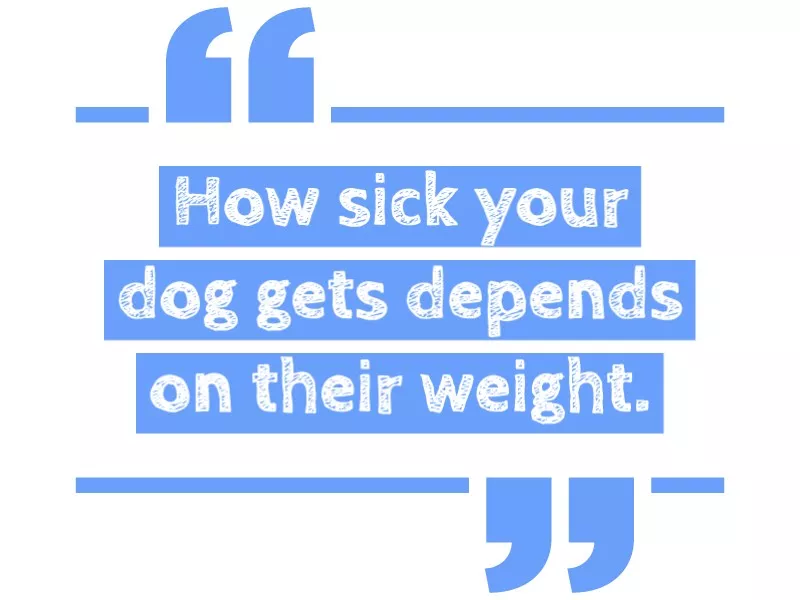
Chocolate contains theobromine and caffeine, which can speed a dog’s heart rate and stimulate its nervous system. How sick your dog gets depends on their weight, the type of chocolate consumed (cocoa powder is the most toxic) and how much they ate.
Chocolate poisoning appears within six to 12 hours after it’s been consumed and may last up three days. It can cause vomiting, diarrhea, increased urination, tremors, elevated or abnormal heart rate, seizures and even death.
What to Do After Dogs Eat Chocolate
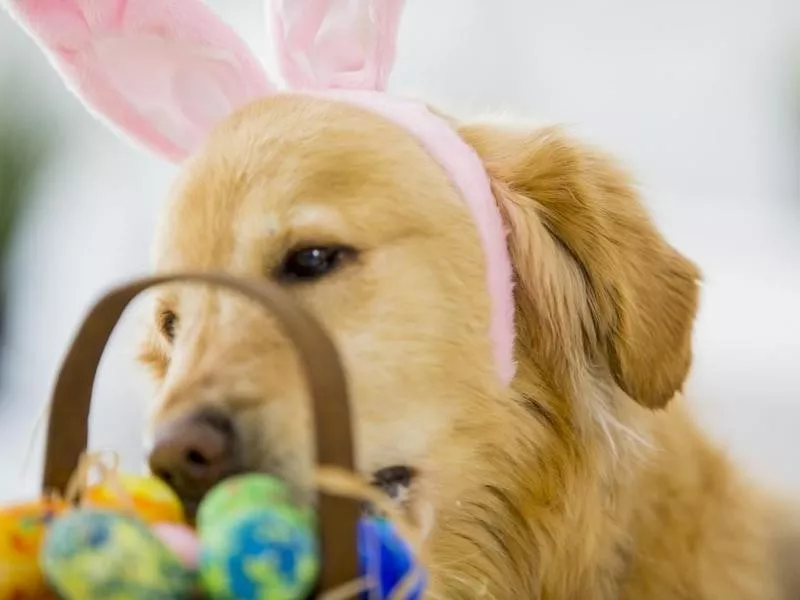
Getty Images
Call your vet or the Pet Poison Helpline (855-213-6680) immediately.
Depending on the factors listed, your vet may have you monitor your dog or bring him in for treatment.
What Happens When Dogs Eat an Avocado
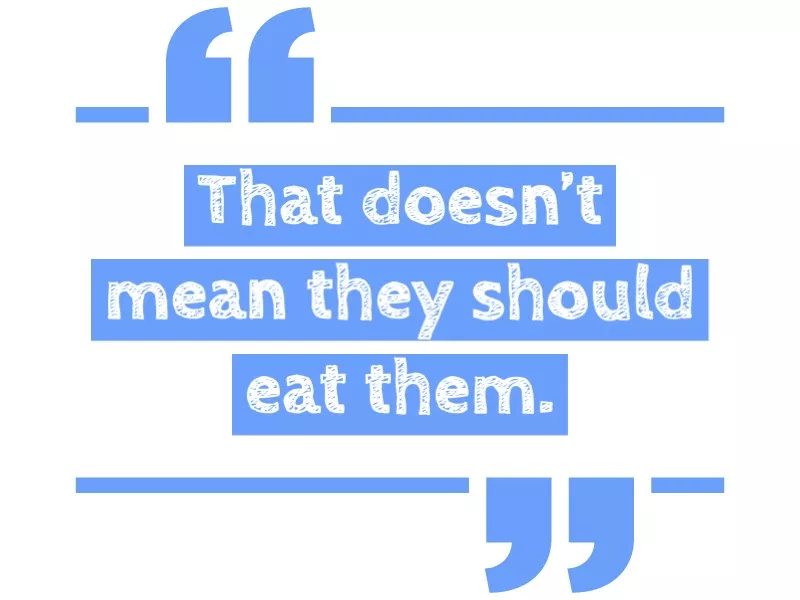
Avocados contain a fungicidal toxin called persin, which is deadly to many animals. While dogs can handle avocados a bit more than other species, that doesn’t mean they should eat them. Persin is in every part of the avocado plant but is more concentrated in its leaves, skin and pit.
In large amounts, it can cause vomiting, diarrhea and heart failure. The pulp itself is far less toxic, but its high-fat content can also lead to pancreatitis in dogs, and at the very least, weight gain.
What to Do After Dogs Eat Avocado
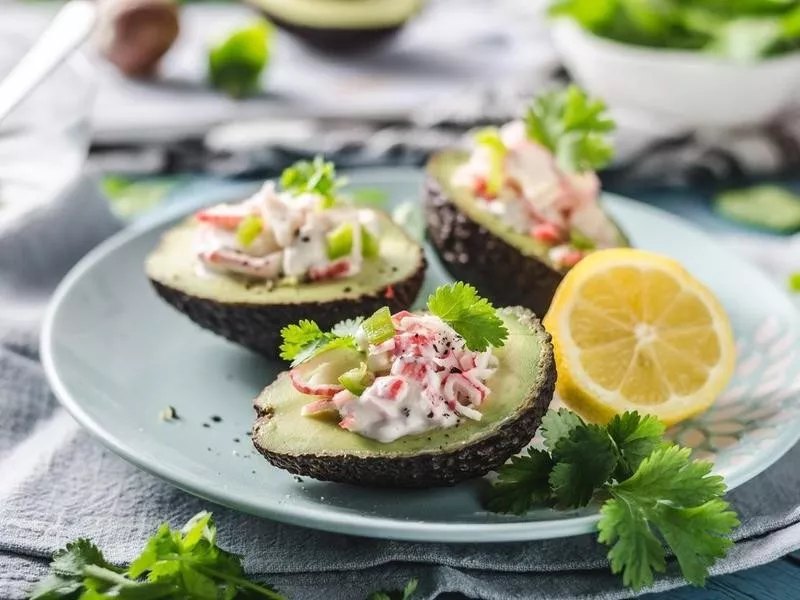
Getty Images
Get a dog-proof trash can, or throw what’s left of the avocado in the trash outside. If you want the fruit in your dog’s diet, there are avocado-based dog foods that you can buy that will be healthier than the fruit itself.
If your pup ingests the other parts of an avocado, a trip to the vet may be in order.
What Happens When Dogs Eat Onions or Garlic
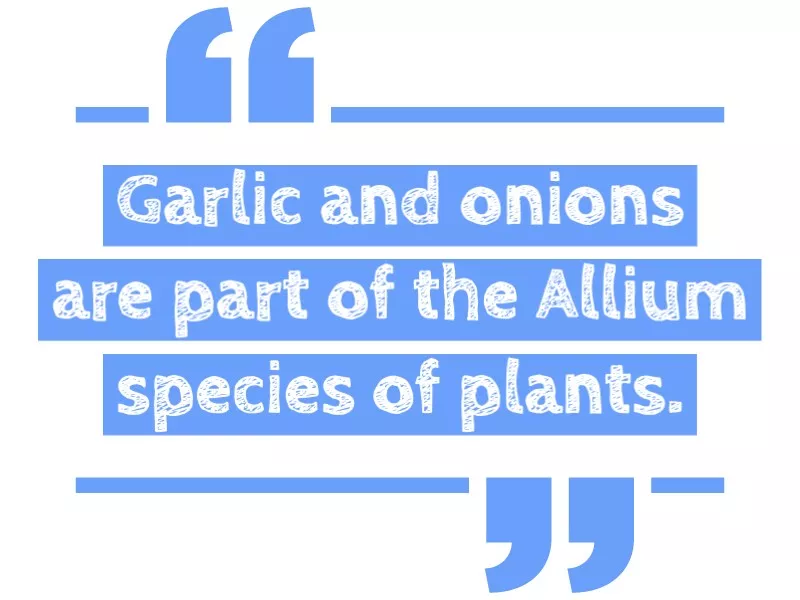
Garlic, onions, leeks, scallions, chives and shallots are all part of the Allium species of plants, which are all toxic to dogs.
They can damage a dog’s blood cells and cause anemia, internal organ damage, organ failure or death.
What to Do After Dogs Eat Onions or Garlic
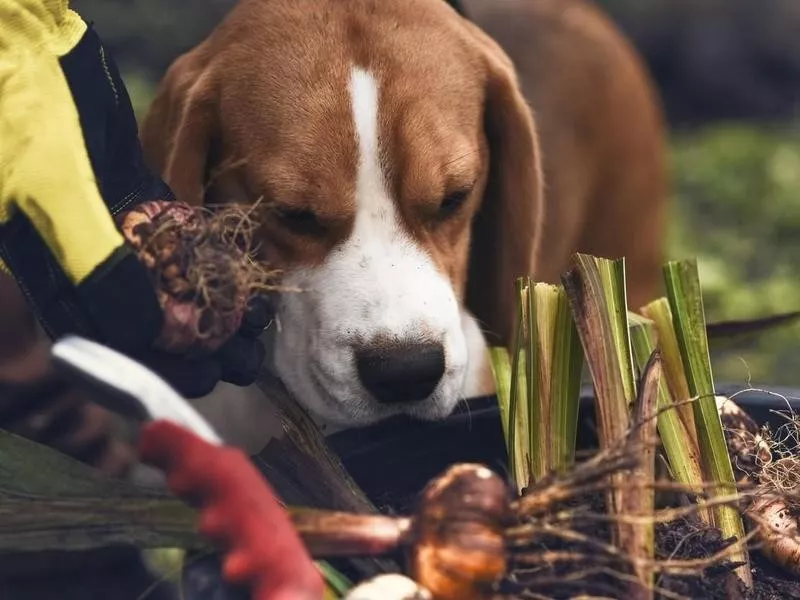
Getty Images
If your dog is lethargic, weak, has ataxia, pale gums, red or brown urine, vomiting, diarrhea and is excessively salivating, get them to the doctor ASAP to induce vomiting.
However, once more signs develop, your dog may need IV fluids, oxygen therapy or even a blood transfusion.
What Happens When Dogs Eat Grapes or Raisins
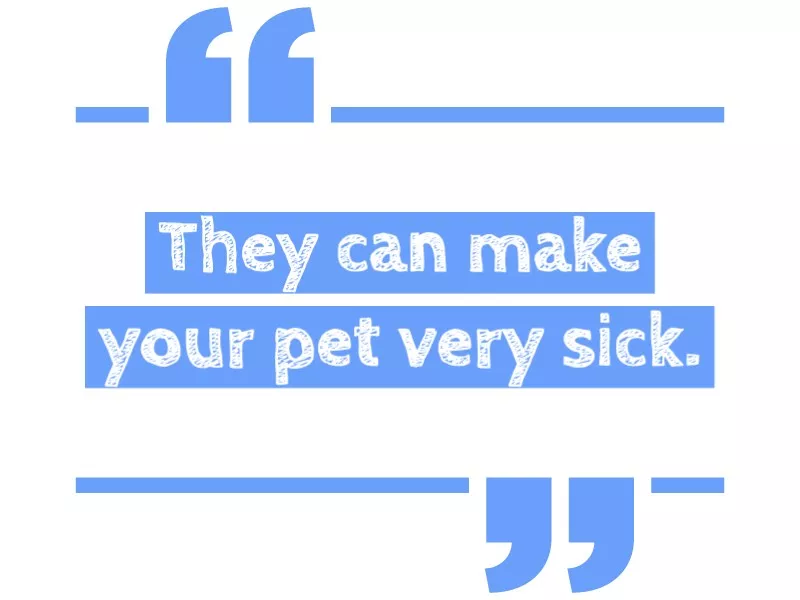
Experts don’t know exactly what makes grapes and raisins toxic to dogs, but they can make your pet very sick.
Some poisoning symptoms from grapes and raisins are lethargy, weakness, loss of appetite, vomiting, diarrhea, abdominal pain, dehydration, increased thirst, kidney failure, and an increase, decrease or cessation of urine.
What to Do After Dogs Eat Grapes or Raisins
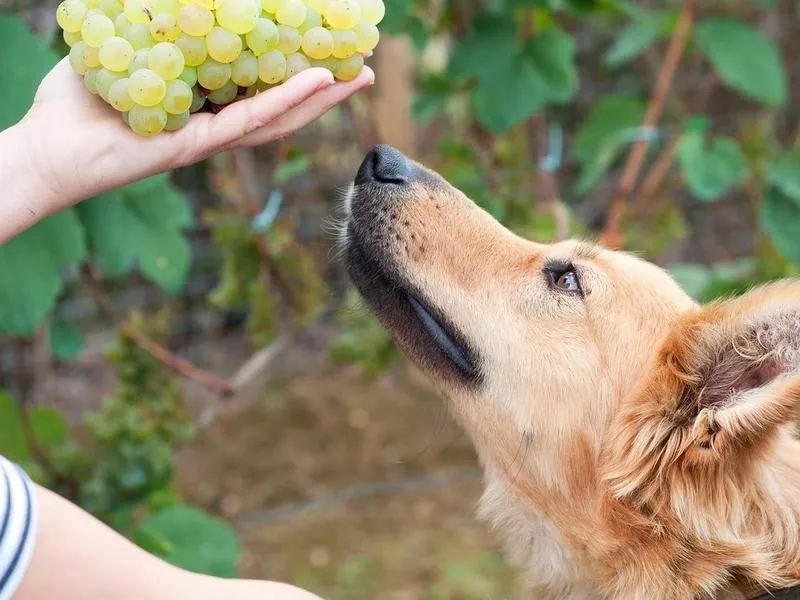
Getty Images
Contact your vet or the Pet Poison Helpline immediately, as many unknowns are associated with this type of poisoning.
What Happens When Dogs Eat Nuts
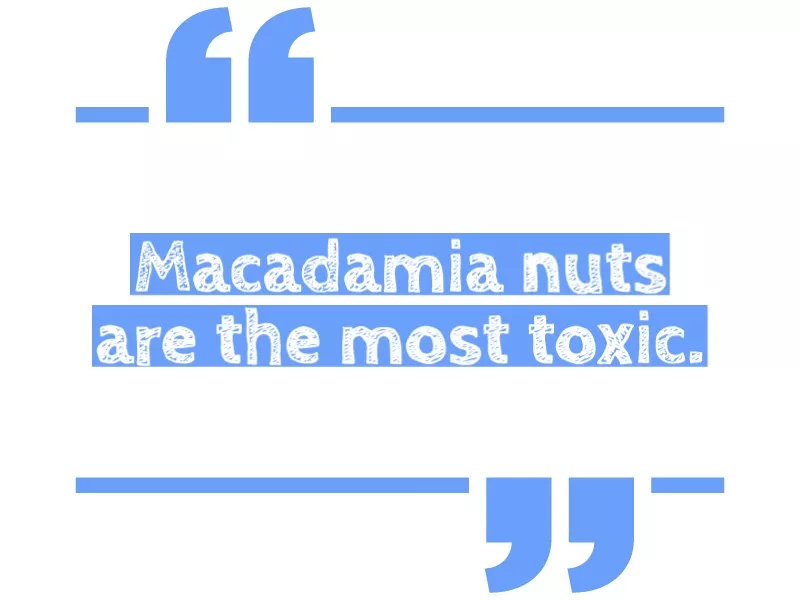
Not all nuts are harmful to dogs, but too many can cause obesity and pancreatic issues, as they are high in fat. Because many nuts are salted, this can lead to water retention. Some nuts, like almonds, are also potential choking hazards.
Macadamia nuts are the most toxic, however, and can cause weakness, depression, vomiting, ataxia, tremors and hyperthermia.
What to Do After Dogs Eat Nuts
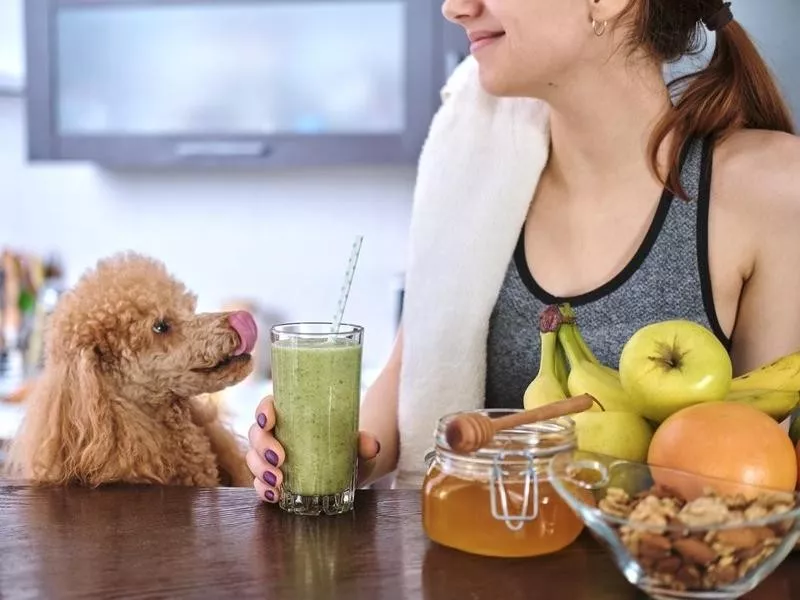
Getty Images
A vet visit is in order if your dog ingests macadamia nuts. If he or she is asymptomatic and has recently eaten them, vomiting may be induced.
Severely affected dogs may be given supportive treatment such as fluids, analgesics or antipyretics.
What Happens When Dogs Eat Fat Trimmings
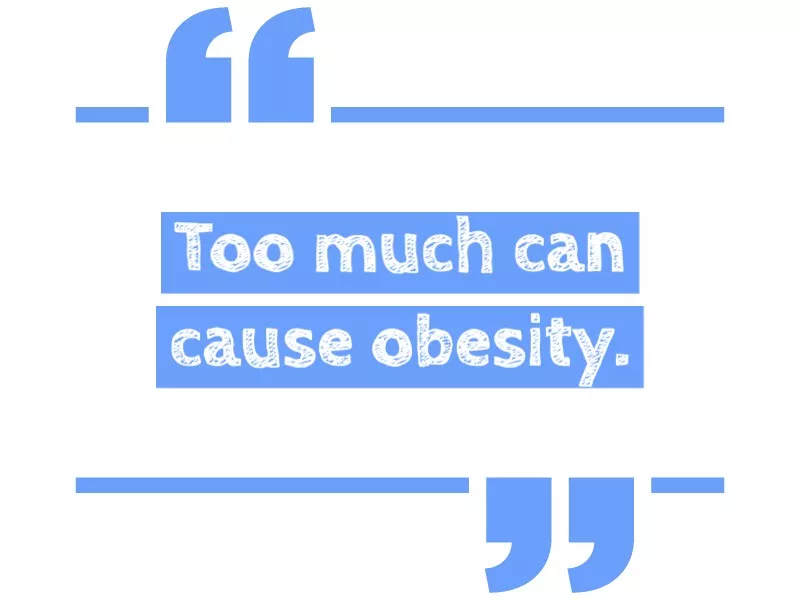
Every dog loves fat trimmings from meats.
While they are generally safe, too much can cause obesity, kidney failure and pancreatitis.
What to Do After Dogs Eat Fat Trimmings
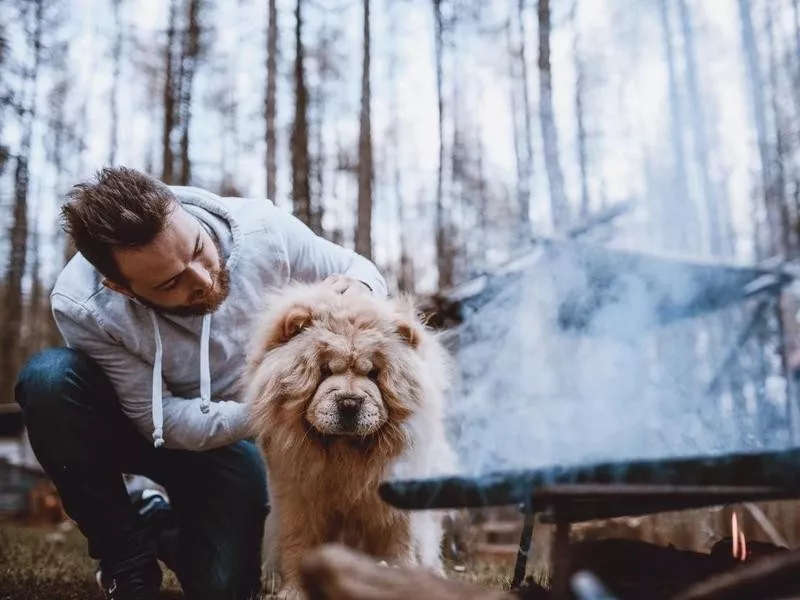
Getty Images
A small piece of fatty meat every once in a blue moon is fine, but practice moderation, and make sure to keep your dog out of the trash.
If you’re unsure just how much your dog can eat, consult with your vet.
What Happens When Dogs Eat Bones
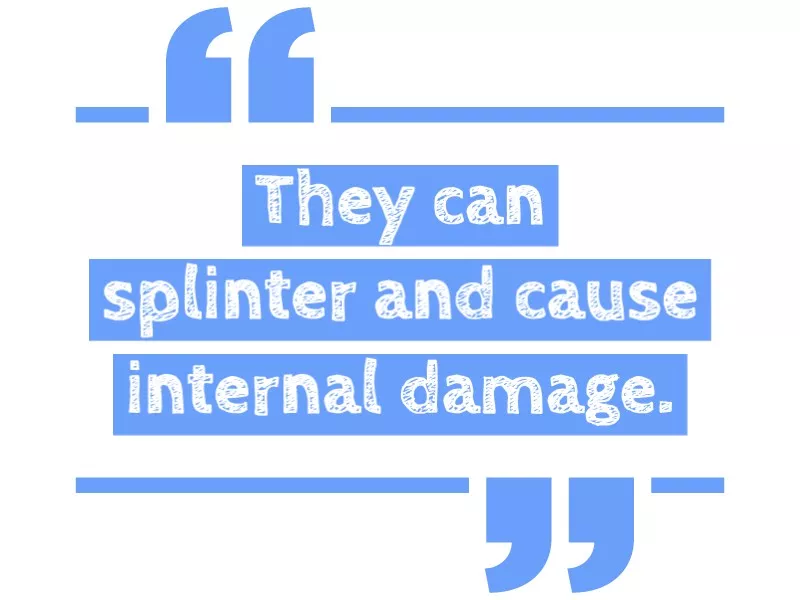
Depending on the type of bones, a dog can choke or suffer an obstruction.
If the bones are small enough, they can splinter and cause internal damage.
What to Do After Dogs Eat Bones
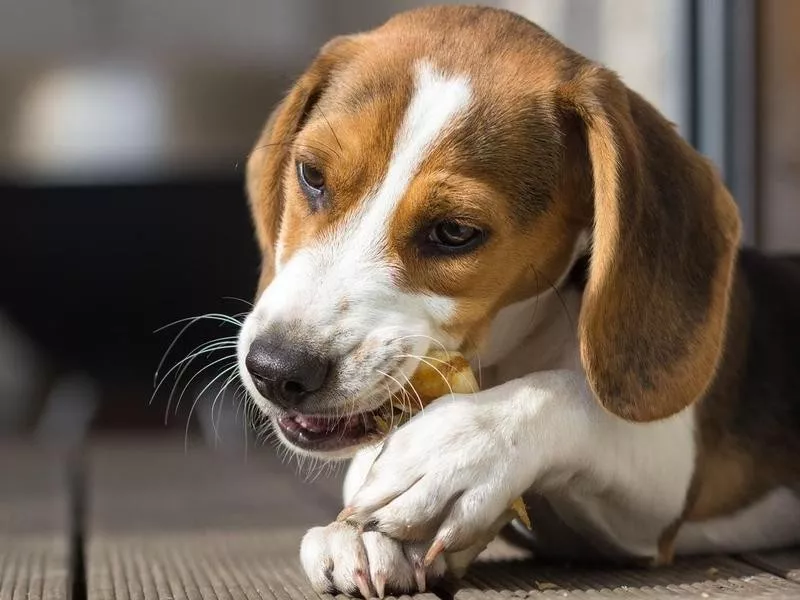
Getty Images
Bones ARE good for dogs — as long as they are not cooked. Don’t let your dog chew bones into small pieces, and don’t give them chunks of bone, as swallowing can cause blockages.
Supervise your dog when they have a bone, and take it away after about 15 minutes. Store it in the refrigerator for no more than three days.
What Happens When Dogs Eat Raw Meat
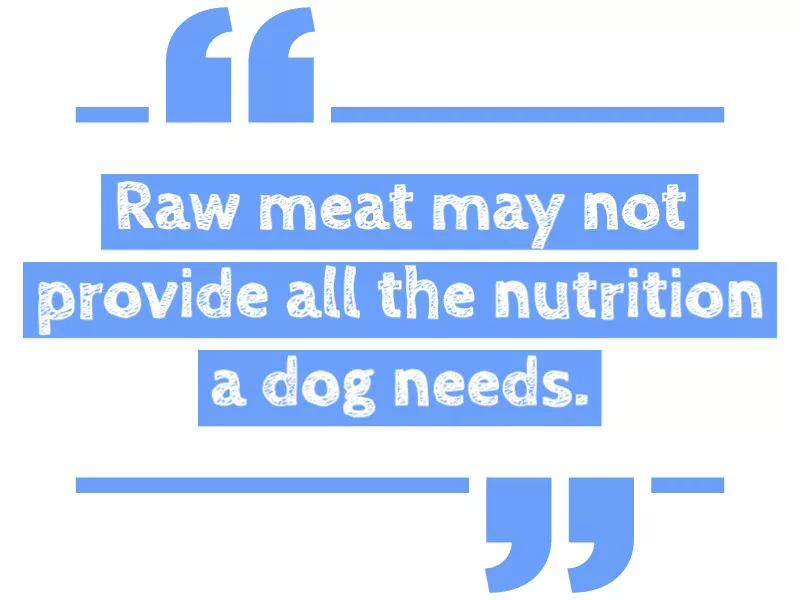
Dogs can eat raw meat, but that doesn’t mean they should. Raw meat may not provide all the nutrition a dog needs.
As with humans, raw meat can make a dog sick due to harmful bacteria like Salmonella, Listeria, E. coli and more.
What to Do After Dogs Eat Raw Meat
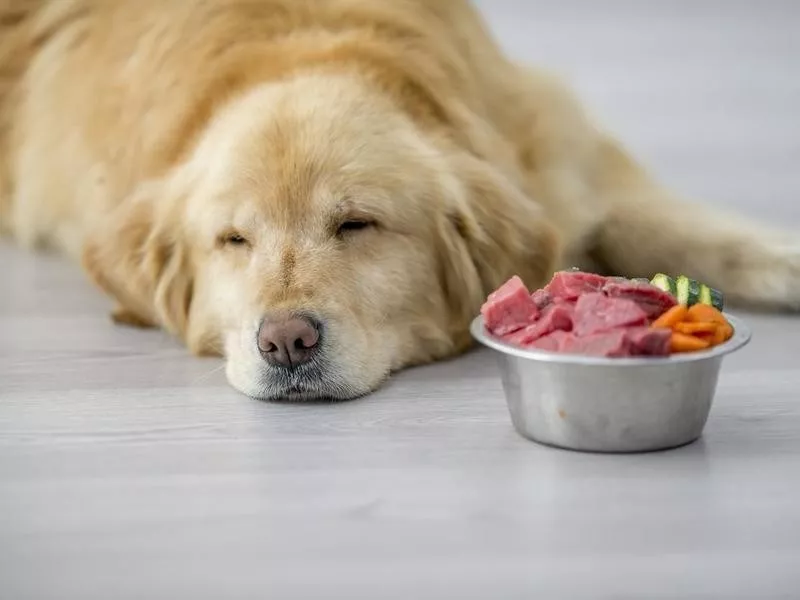
Getty Images
If you want to feed your dog raw food, consult with a vet first to make an informed decision.
The vet can offer recipes that provide balanced nutrition and even supplements for your pet’s individual needs.
What Happens When Dogs Eat Bread Dough
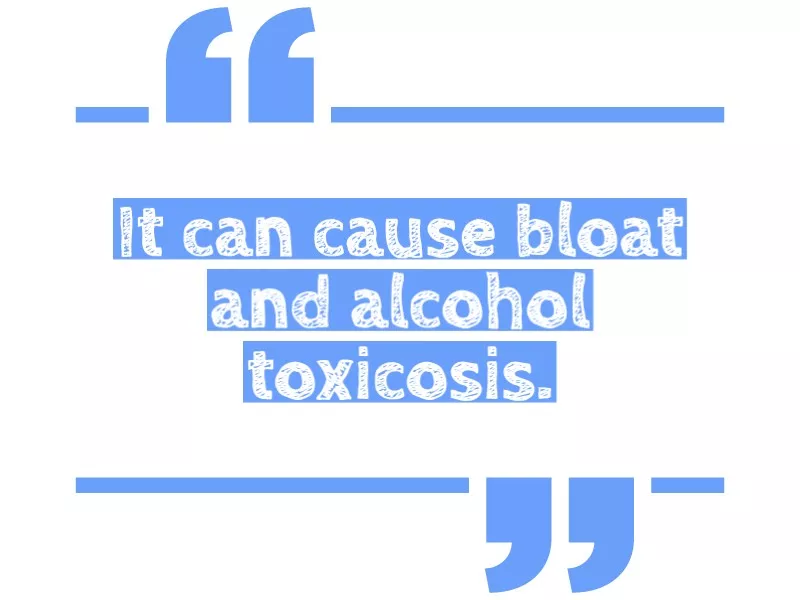
Bread dough can be toxic to dogs, as yeast can cause stomach distention and allow toxic ethanol levels to enter your dog’s bloodstream.
It can cause bloat and alcohol toxicosis.
What to Do After Dogs Eat Bread Dough
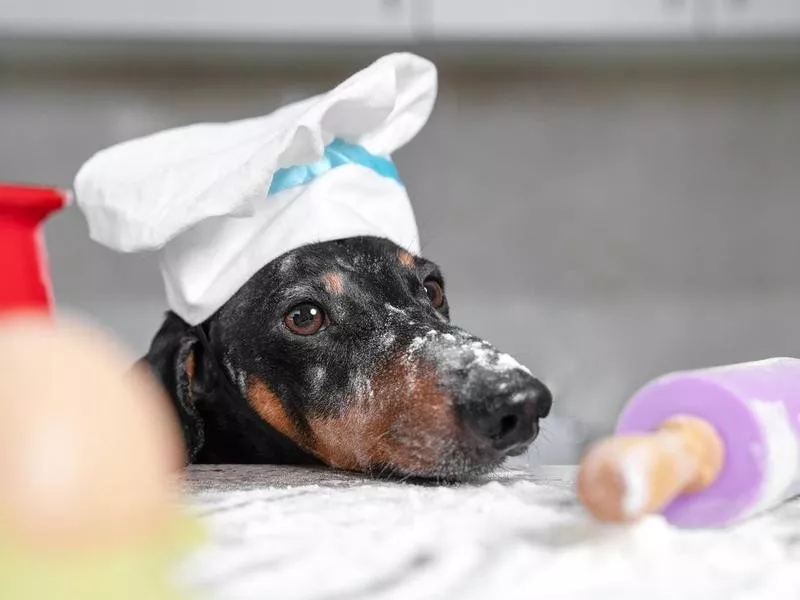
Getty Images
Call your veterinarian immediately and look out for alcohol toxicosis symptoms — a depressed central nervous system, depression, weakness, an unsteady gait or hypothermia.
If left unchecked, it can lead to seizures, coma and death.
What Happens When Dogs Eat Stone Fruits
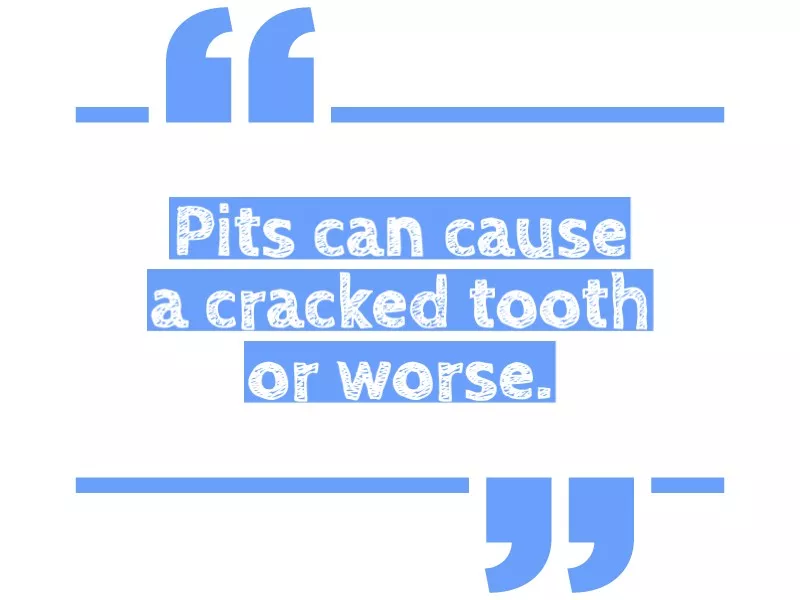
Peach, cherry and nectarine “meat” won’t hurt your dog, but their “stones” — seeds and pits — will.
Pits can cause a cracked tooth or even get lodged in your dog’s esophagus and cause damage. And if your dog begins to digest a pit, this can obstruct their intestines or cause cyanide poisoning.
What to Do After Dogs Eat Stone Fruits
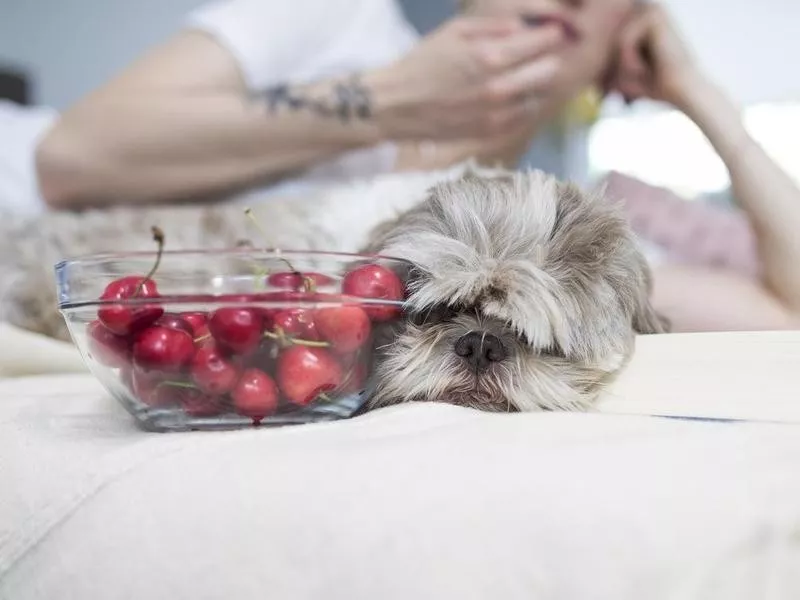
Getty Images
Prepare fruits properly before giving them to your dog — that means giving your pup the flesh only.
If your pooch does ingest a pit, call your vet immediately.
What Happens When Dogs Eat Coconut
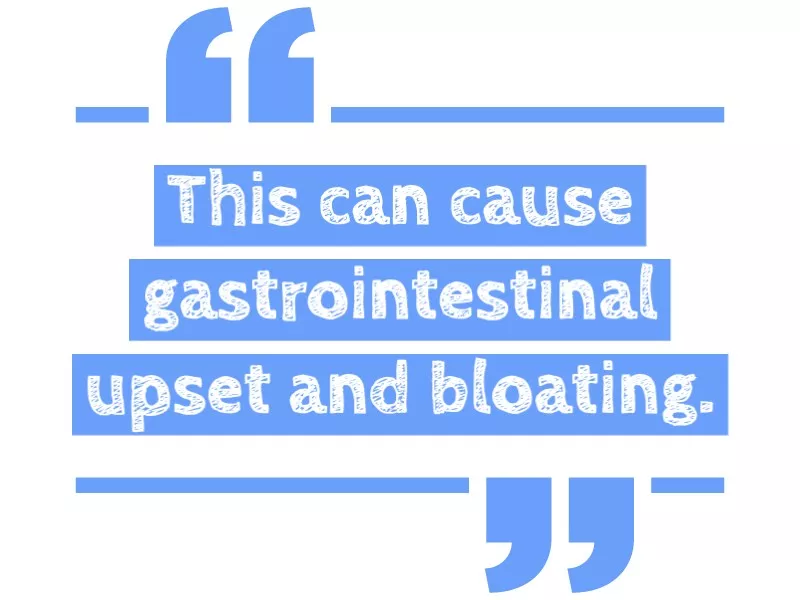
Coconut is generally non-toxic to dogs, but it does contain medium-chain triglycerides.
This can cause gastrointestinal upset and bloating.
What to Do After Dogs Eat Coconut
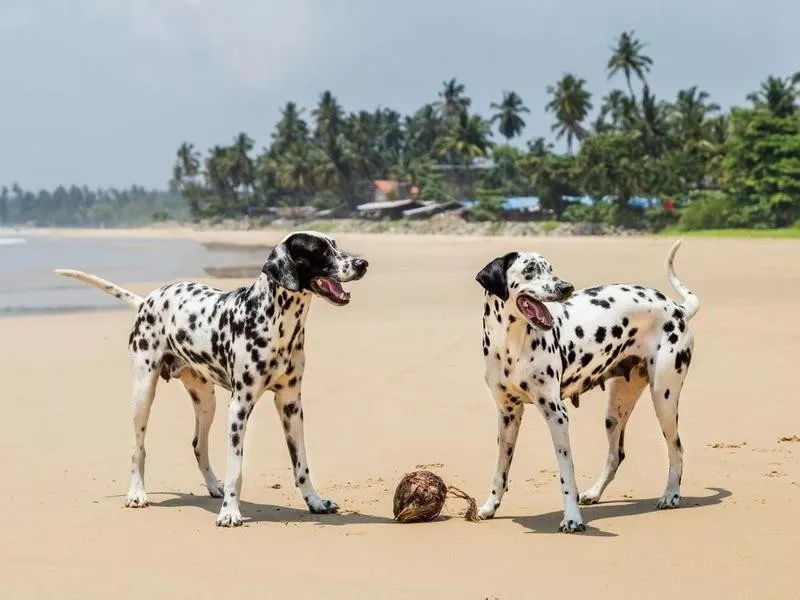
Getty Images
Coconut can be healthy for dogs — it reduces inflammation and boosts the immune system, but moderation is key.
Check with your vet to make sure your dog can handle coconut.
What Happens When Dogs Eat Dairy
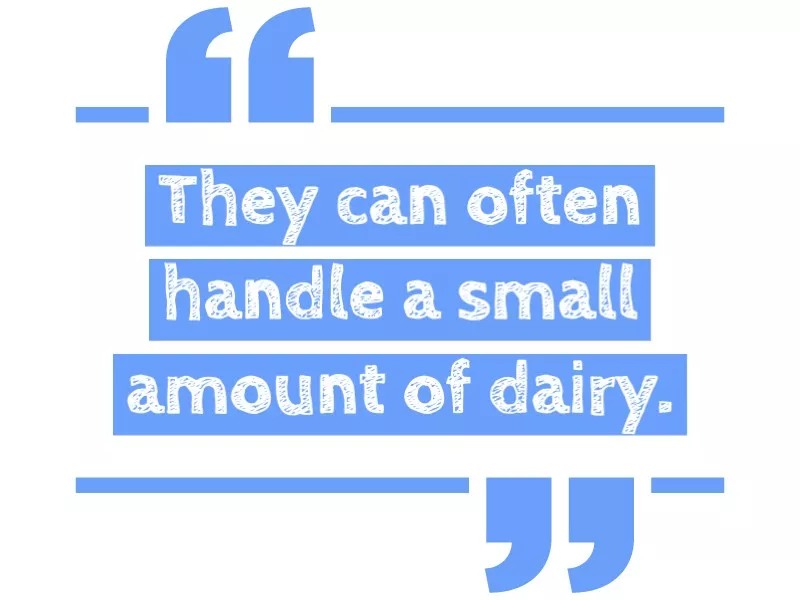
Many dogs are lactose intolerant, meaning they lack the enzymes to digest milk.
They can often handle a small amount of dairy in yogurt and cheese, but too much can cause diarrhea, vomiting, loose stools, obesity and pancreatitis.
What to Do After Dogs Eat Dairy
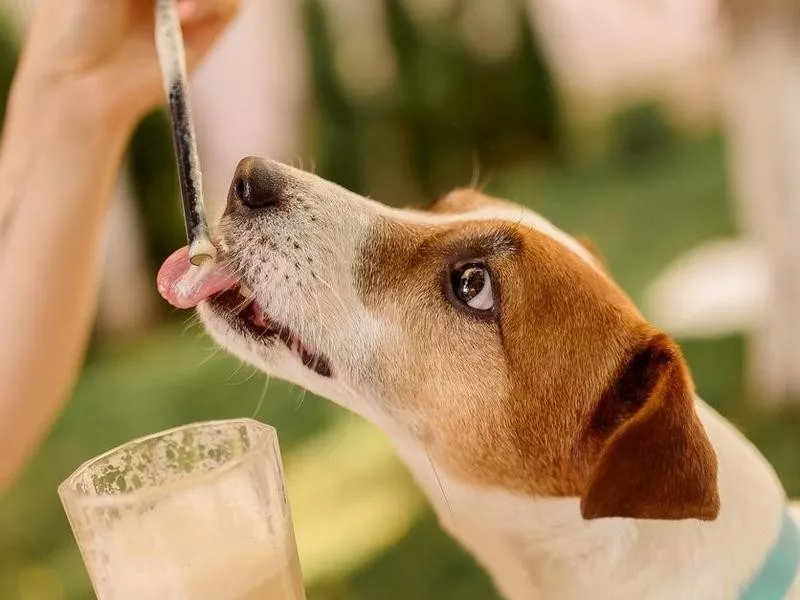
Getty Images
Moderation is essential when it comes to dairy and dogs. And what dog doesn’t love the occasional Puppacino?
But if your dog is having tummy issues, remove it from their diet.
What Happens When Dogs Eat Xylitol
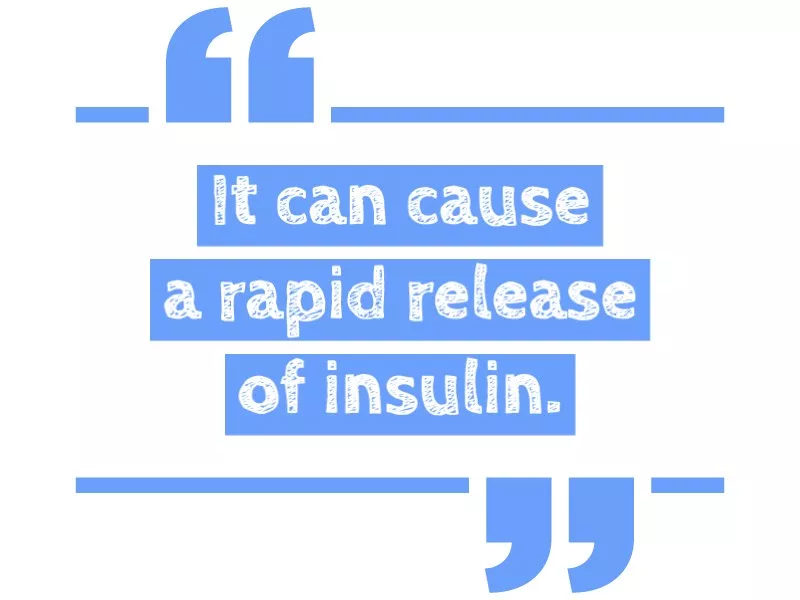
This sugar substitute is in many household items, including gum, candy, breath mints, baked goods, pudding, cough syrup, children’s vitamins, supplements, mouthwash and toothpaste.
It can cause a rapid release of insulin and decreased blood sugar (hypoglycemia) and liver failure.
What to Do After Dogs Eat Xylitol
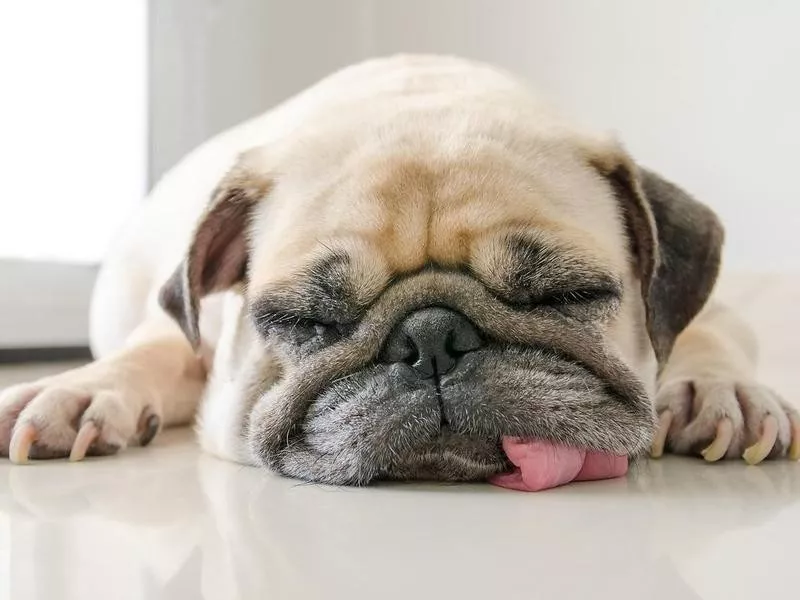
Getty Images
If your dog shows symptoms of vomiting, weakness, lethargy, coordination issues, tremors or seizures, contact your vet or the Pet Poison Helpline immediately.
What Happens When Dogs Eat Salt and Salty Snack Foods
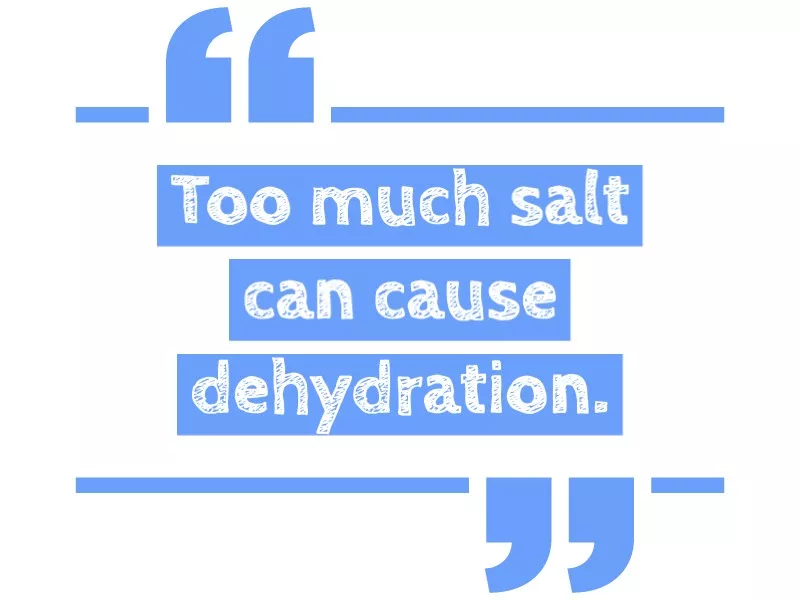
Dogs love the occasional salty French fry or tortilla chip as much as we do, but they can get sick from it.
Too much salt can cause dehydration, vomiting, nausea and diarrhea.
What to Do After Dogs Eat Salt and Salty Snack Foods
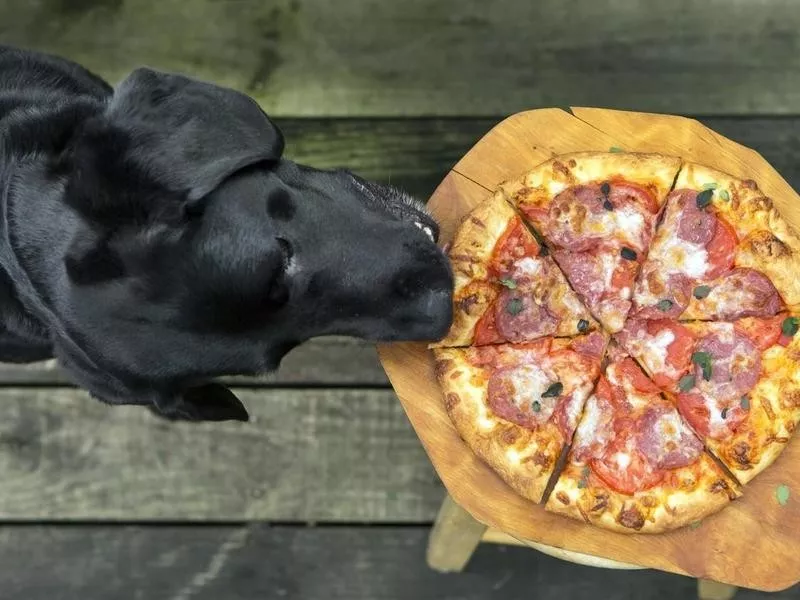
Getty Images
Salt in moderation is OK, but if you feel your dog has had too much, contact your vet or the Pet Poison Helpline. If the poisoning is severe, your dog may need IV fluids and monitoring of electrolytes, dehydration and brain swelling.
It can take up to three full days to bring a dog’s salt levels back to normal.
What Happens When Dogs Eat Rodenticides
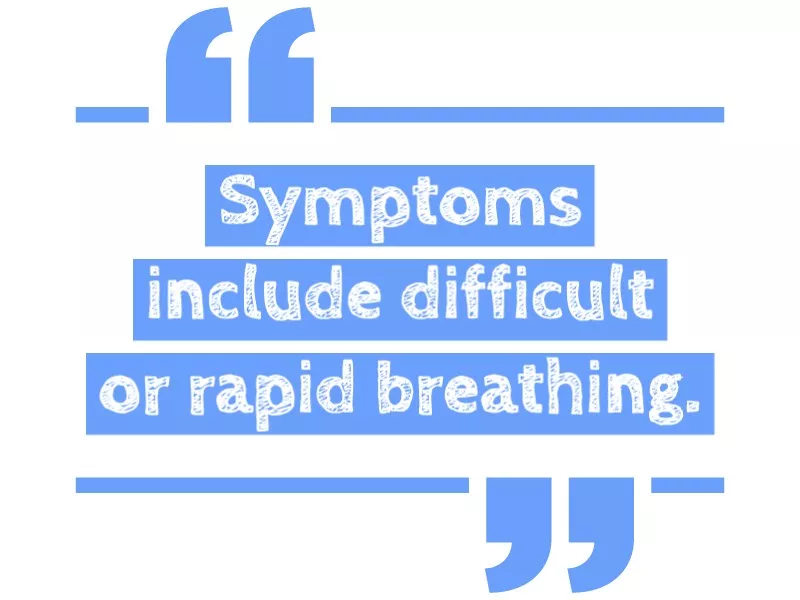
Rodenticides contain coumarin anticoagulants, which prevent the blood from clotting. Symptoms include difficult or rapid breathing, joint or other under-the-skin swellings, or bleeding from the nose, mouth, vagina or rectum.
A weak pulse, pale gums, lameness, lethargy and depression are also symptoms.
What to Do After Dogs Eat Rodenticides

Getty Images
Without treatment, death is inevitable.
Your vet may induce vomiting, but if your dog is beyond that point, high doses of vitamin K1, intravenous fluid therapy, blood transfusions and blood removal from around the heart or lungs may be necessary.
What Happens When Dogs Eat Insecticides
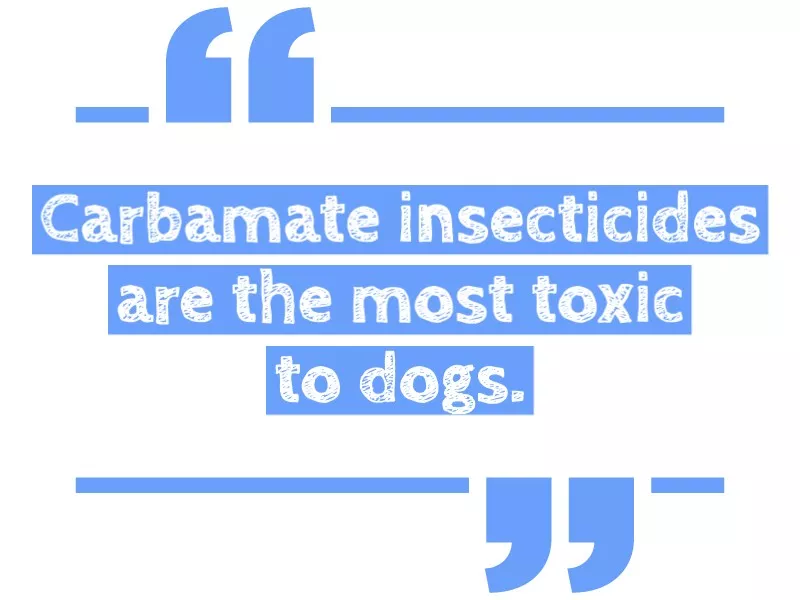
Carbamate insecticides, such as d-Limonene, Methoxychlor and Pyrethrins or pyrethroids, are the most toxic to dogs.
They can cause various symptoms, including drooling, gagging, vomiting, diarrhea, agitation, seizure, tremors, convulsions, difficulty breathing and a high heart rate.
What to Do After Dogs Eat Insecticides
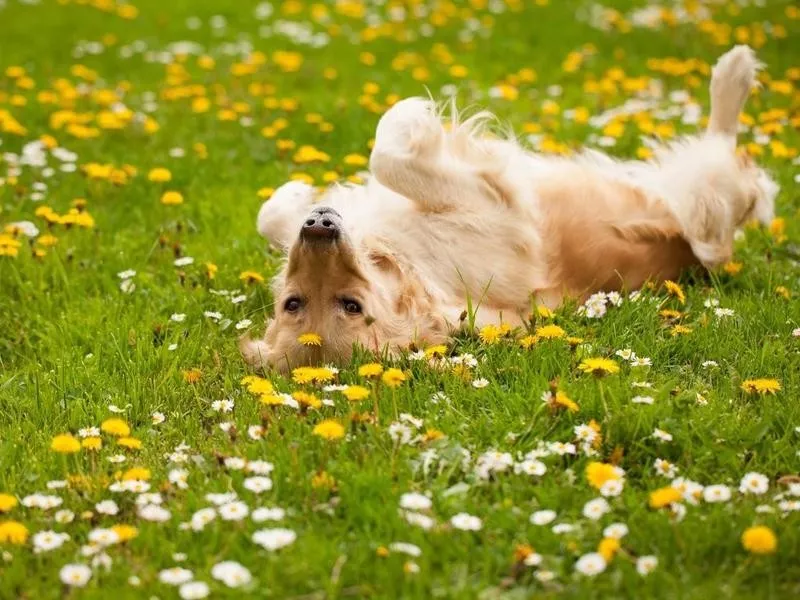
Getty Images
Look for SLUD — salivation, lacrimation, urination and diarrhea — these are often signals of insecticide poisoning. Call the Pet Poison Helpline or contact your vet immediately.
When using insecticides, remember to purchase those that are safe for your pets.
What Happens When Dogs Eat Indoor and Garden Plants
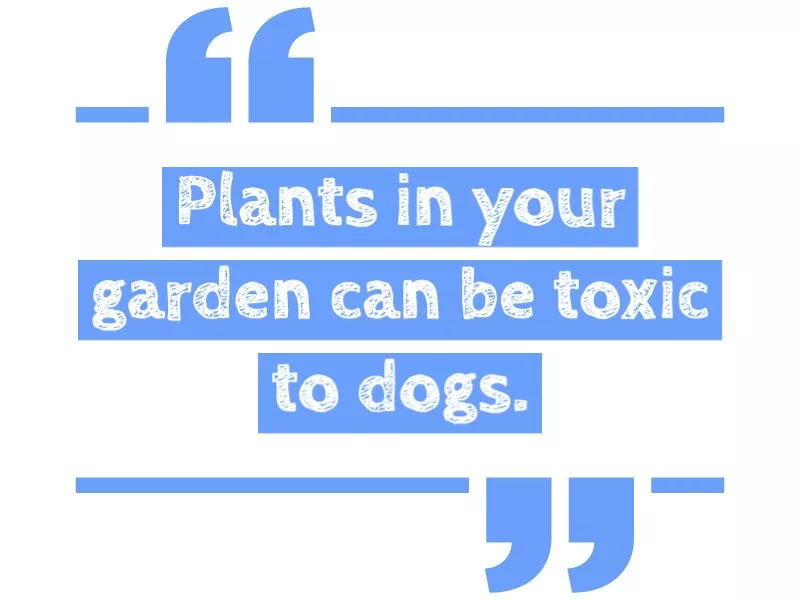
House plants and those in your outdoor garden can be toxic to dogs.
There are too many to list, but plants like aloe vera, sago palm, poinsettias, ivy and daffodils can cause a variety of symptoms, from vomiting to heart problems and liver failure.
What to Do After Dogs Eat Indoor and Garden Plants
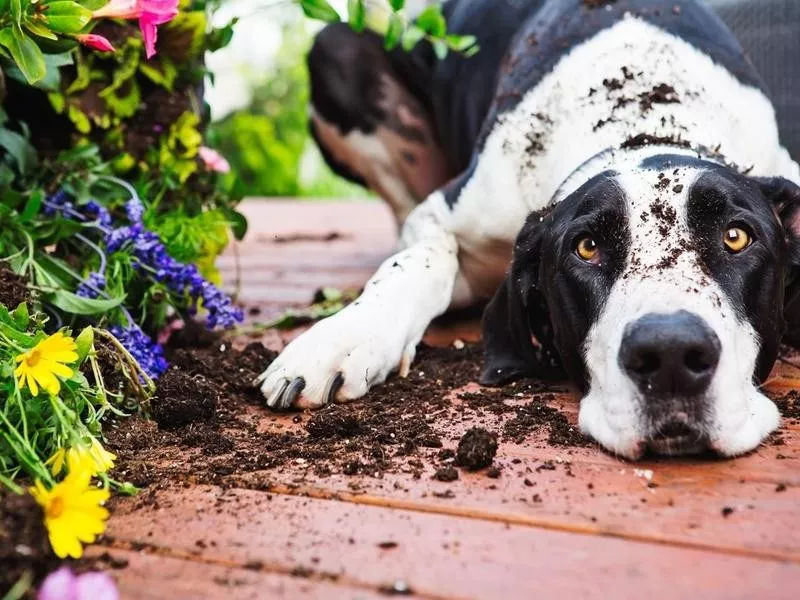
Getty Images
If you have toxic plants, make sure they are out of your dog’s reach or watch your dog carefully in the yard.
If you notice a decline in their health and suspect they got into some plants, contact your vet or the Pet Poison Helpline.
What Happens When Dogs Eat Cleaning Supplies
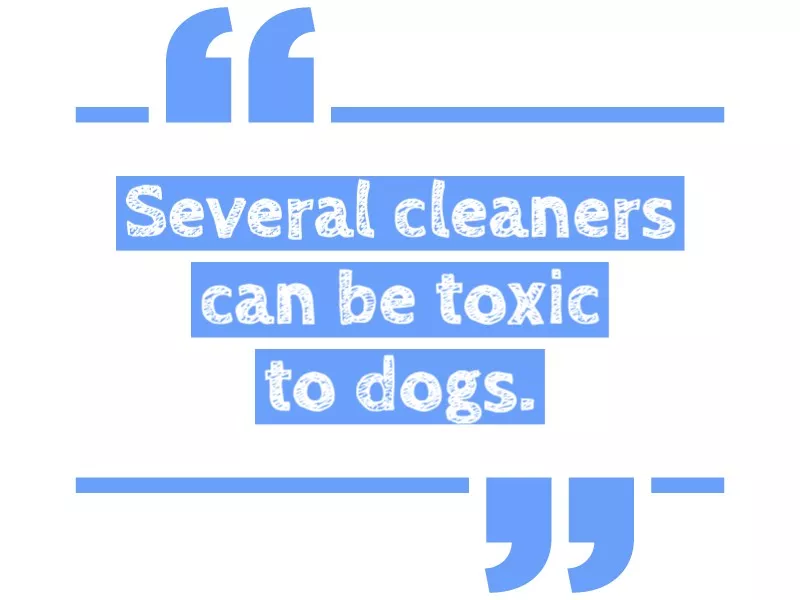
Bleach, ammonia, and drain, oven, carpet and toilet bowl cleaners can all be toxic to dogs.
Symptoms of exposure can range from skin irritation to vomiting, dizziness, and liver and kidney failure.
What to Do After Dogs Eat Cleaning Supplies
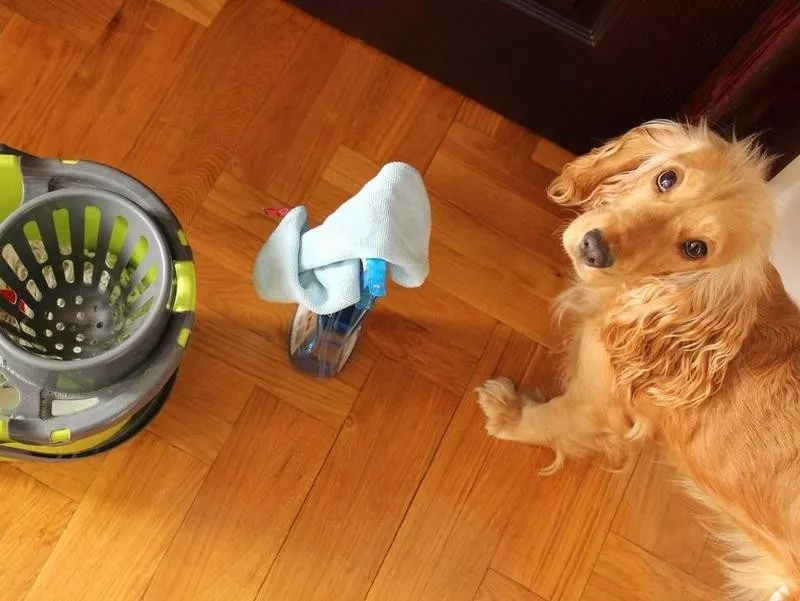
Getty Images
Make sure all cleaning products are out of your dog’s reach. If you suspect poisoning, contact your vet or the Pet Poison Helpline.
You can also buy pet-safe cleaning products for your home to reduce the chance of poisoning.
What Happens When Dogs Eat Pharmaceuticals
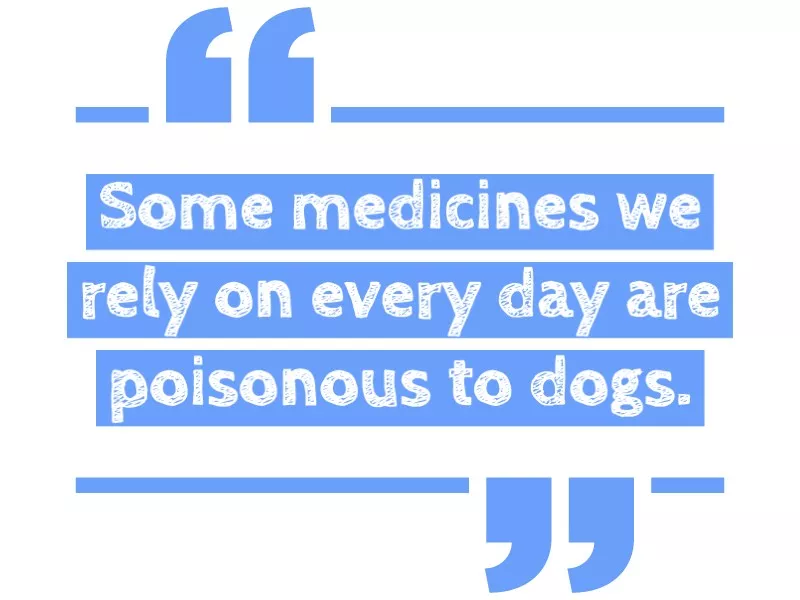
NSAIDs (Advil, Aleve and Motrin), acetaminophen (Tylenol), antidepressants, ADD/ADHD medications, benzodiazepines and sleep aids, birth control and ACE inhibitors are just some of the medicines we rely on every day that are poisonous to dogs.
They, too, have a variety of symptoms, and once ingested, can be fatal.
What to Do After Dogs Eat Pharmaceuticals
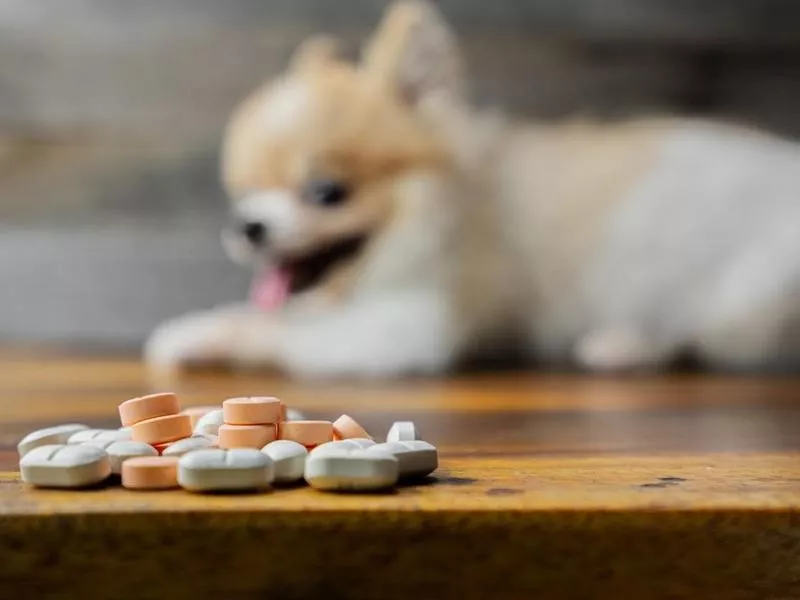
Getty Images
Keep your medications out of your pet’s reach, and call your vet immediately if you suspect poisoning.
What Happens When Dogs Eat Cannabis
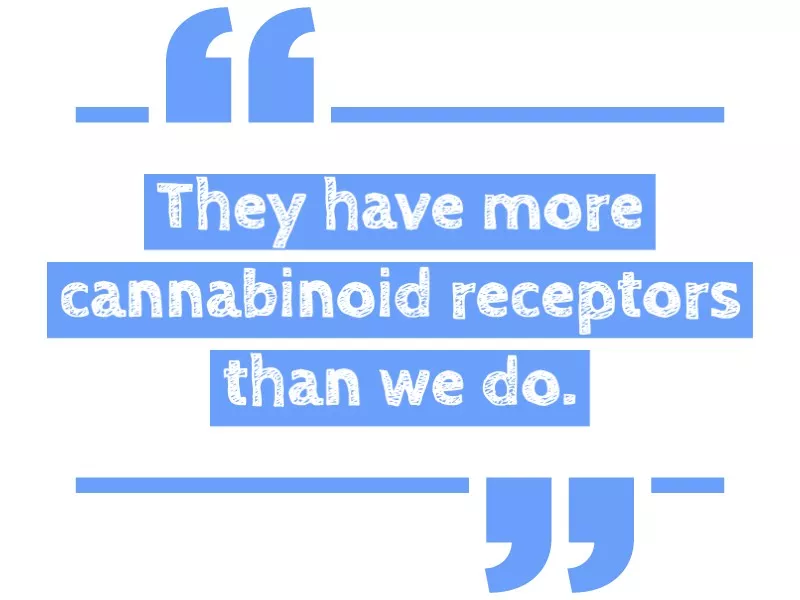
Yes, your dog can get stoned, but it’s not a laughing matter because they have more cannabinoid receptors than we do.
This means the effects of cannabis are more pronounced and possibly deadly.
What to Do After Dogs Eat Cannabis
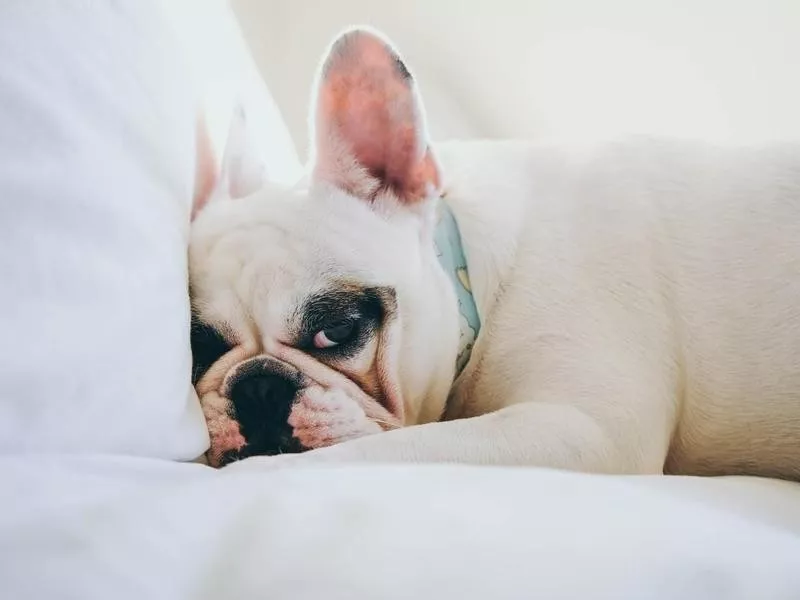
Getty Images
A trip to the vet is in order, and knowing what your dog ingested — edibles or the plant itself — will help the doctor understand how to treat your pet.
A vet can pump your dog’s stomach, administer activated charcoal or enemas to reduce toxin absorption.
What Happens When Dogs Eat Fertilizer
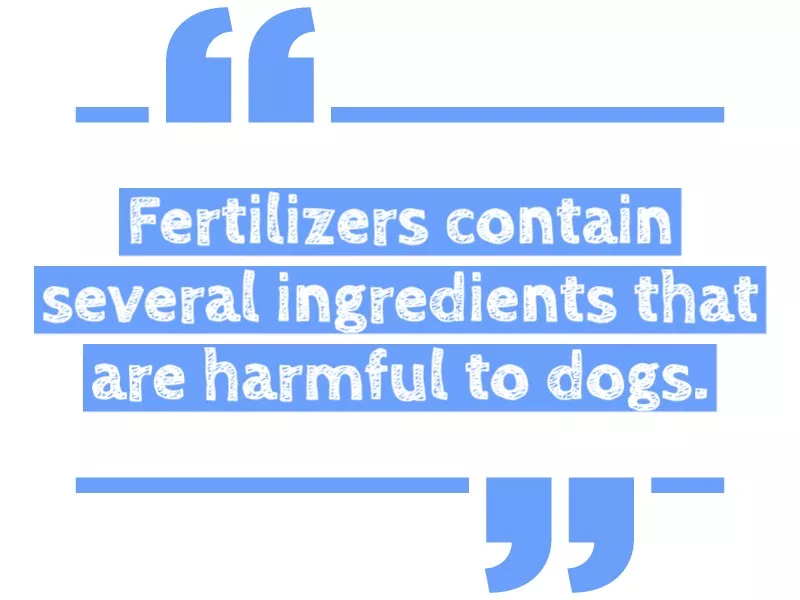
Fertilizers can contain nitrogen, phosphorus, potassium, iron, copper, zinc, cobalt, boron, manganese and molybdenum.
All of these may be toxic to pets in high concentrations and can cause a variety of symptoms depending on the ingredients.
What to Do After Dogs Eat Fertilizer
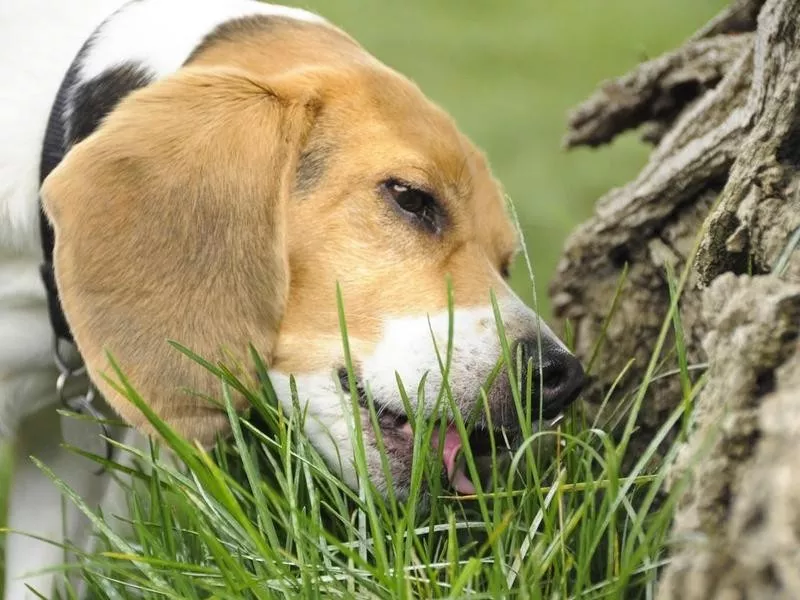
Getty Images
If your dog ingests a small amount of fertilizer, they may only have a mildly upset stomach, but larger concentrations can cause respiratory distress, bowel obstruction or death.
Contact your vet or the Pet Poison hotline immediately.
What Happens When Dogs Eat Antifreeze
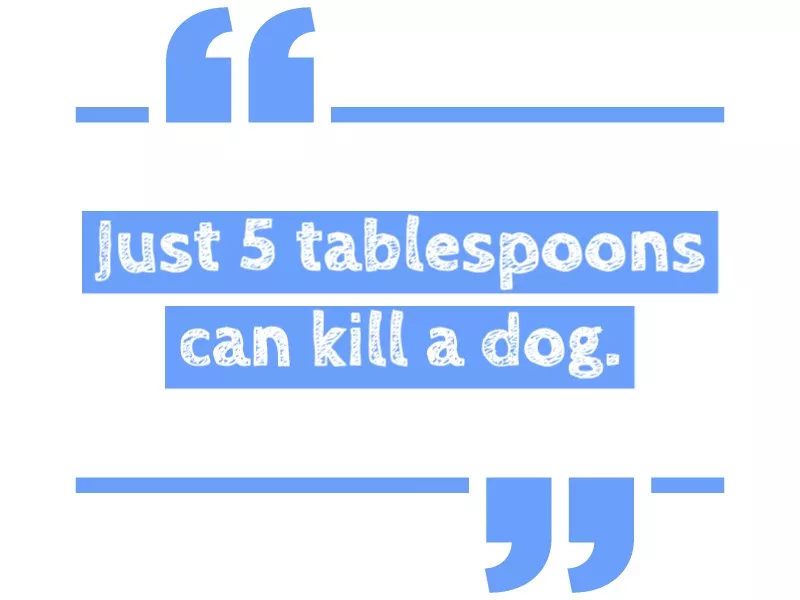
Antifreeze is highly toxic to pets. Your dog can walk through a puddle, lick it off their paws and get very sick.
Just 5 tablespoons can kill a medium-sized dog!
What to Do After Dogs Eat Antifreeze
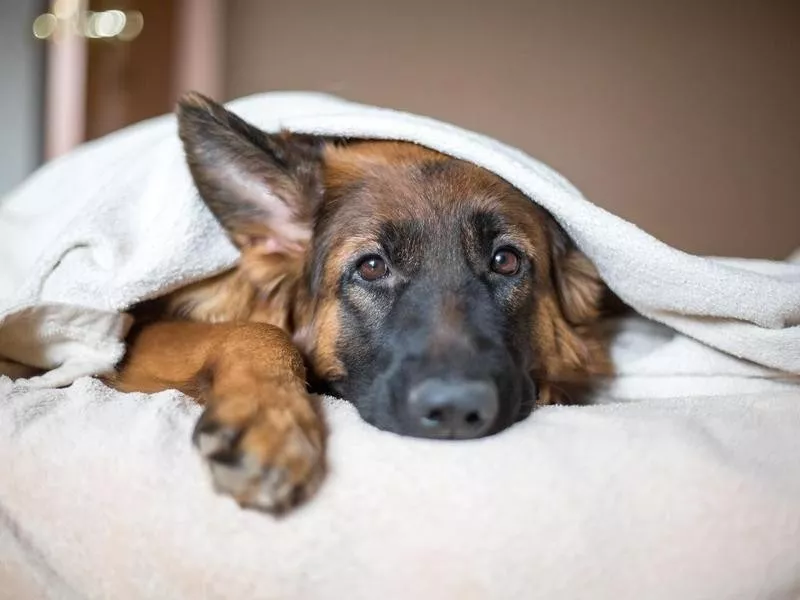
Getty Images
If your dog is depressed, staggering, having seizures, vomiting and excessively drinking, call your vet immediately.
Your dog may appear to feel better but may worsen a few days later as their kidneys fail.
What Happens When Dogs Eat Batteries
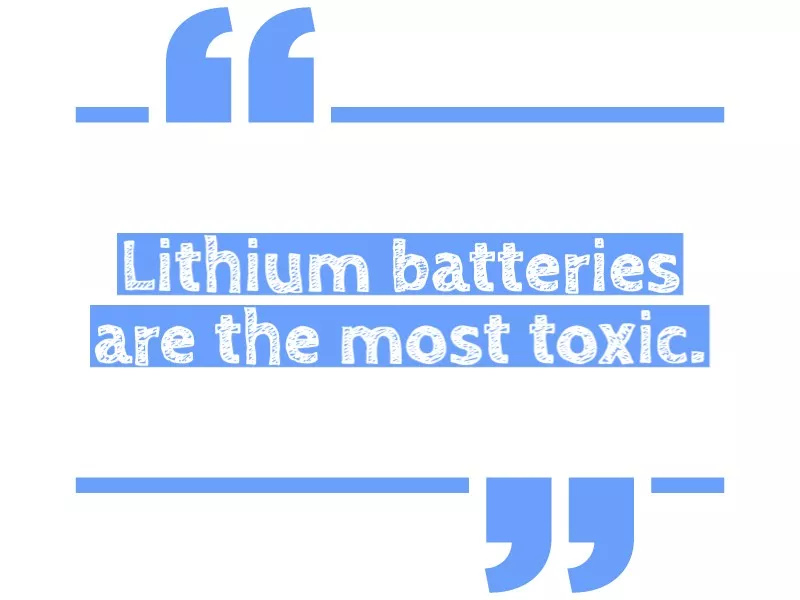
There are different symptoms for different types of batteries. Standard alkaline batteries can cause irritation or obstruction in the digestive tract and chemical burns. They can also cause liquefaction necrosis and ulcers.
Disc batteries can cause an electric current to pass through the gastrointestinal tract or cause current-induced necrosis of the mouth, esophagus, stomach or small intestine. Lithium batteries are the most toxic — swallowing these can cause severe necrosis internally within minutes.
What to Do After Dogs Eat Batteries
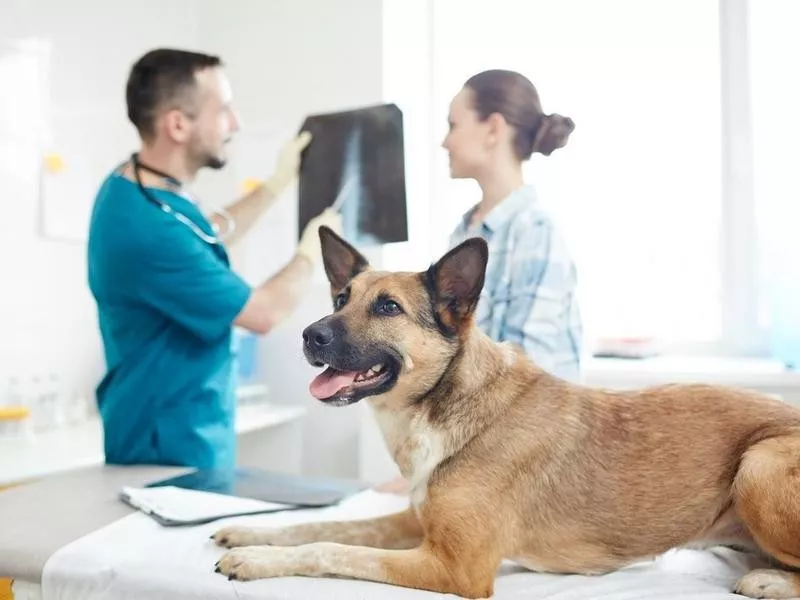
Getty Images
Contact your vet. He or she will perform an oral or physical exam, flush your dog’s mouth and take X-rays.
Surgery may also be necessary.
What Happens When Dogs Eat Rawhide
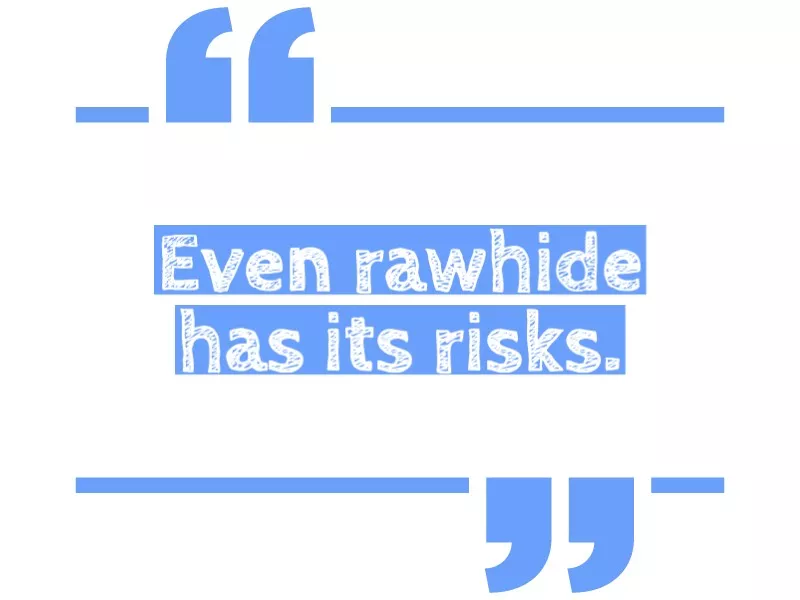
Even though rawhide is made for dogs, there are risks.
Bacterial contamination, digestive irritation, choking or blockages are rare but can happen.
What to Do After Dogs Eat Rawhide
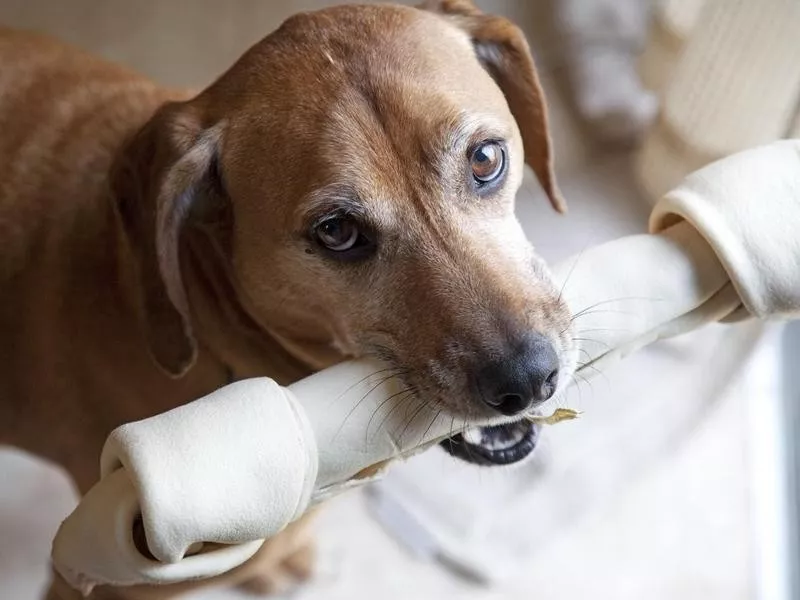
Getty Images
When giving your dog rawhide, supervise them while they chew, and buy only quality products.
If they show signs of gagging, regurgitation, repeated swallowing, vomiting, diarrhea, pain, fever or a lack of energy, call your vet.
What to Do After Dogs Eat or Drink Coffee and Caffeine
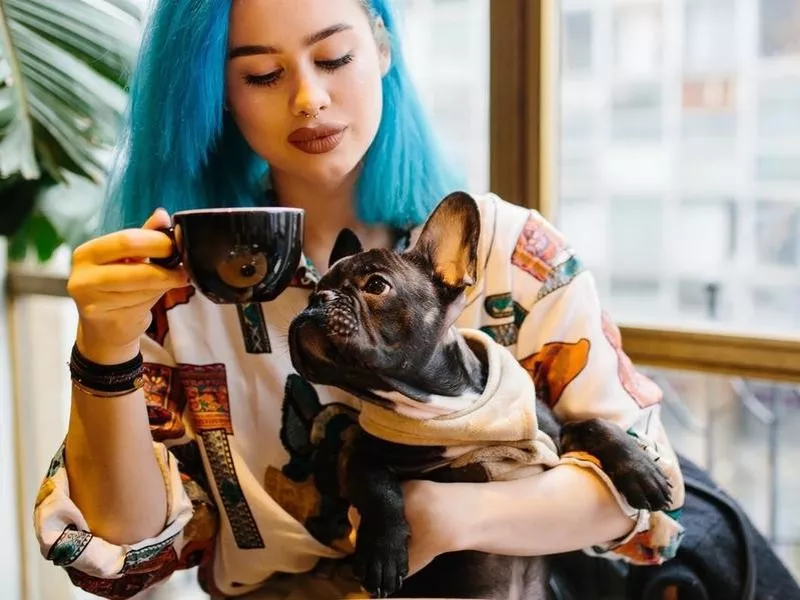
Getty Images
Call your vet, who will likely induce vomiting. The doctor may give your dog IV fluids, sedatives, heart medications, anticonvulsants or antacids.
Your dog may also need a urinary catheter, as caffeine can reabsorb in the bladder.
What Happens When Dogs Eat or Drink Coffee and Caffeine
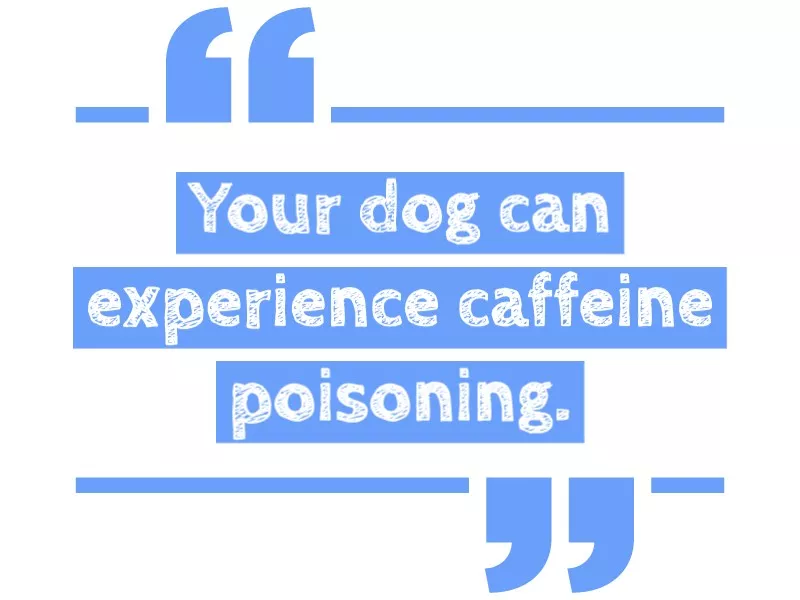
Within just a couple hours of exposure to coffee or other caffeinated beverages, your dog can experience caffeine poisoning.
Symptoms include hyperactivity, restlessness, vomiting, tachycardia, hypertension, abnormal heart rhythms, seizures and collapse. It can be fatal if left unchecked.
What Happens When Dogs Drink Alcohol
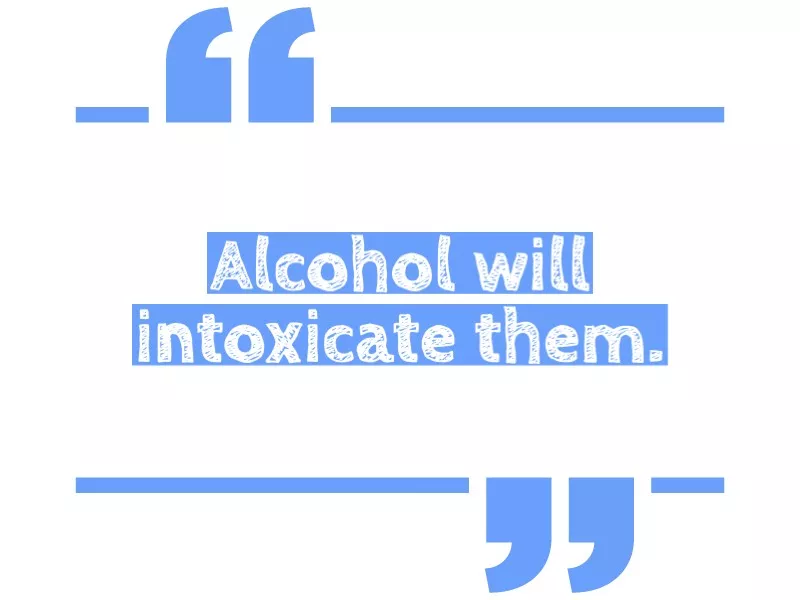
Alcohol does to dogs what it does to people — it intoxicates them. It can cause vomiting, disorientation, restlessness, excessive panting and high body temperature.
In larger amounts, it can also cause tremors, seizures and death.
What to Do After Dogs Drink Alcohol
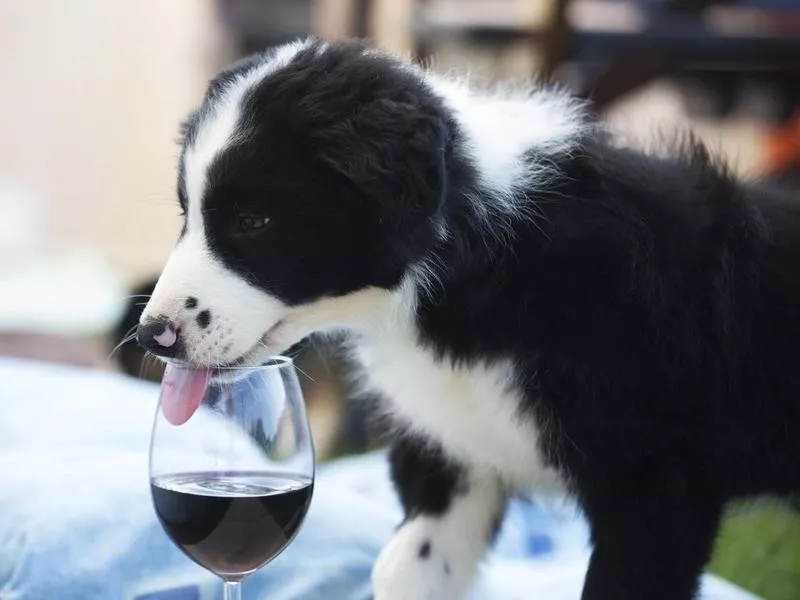
Getty Images
How much your dog has had, their weight and what they drank will come into play when deciding how to treat them.
If they had more than a sip, bring them to your vet or an emergency vet center. If they have alcohol poisoning, he needs to be treated immediately.